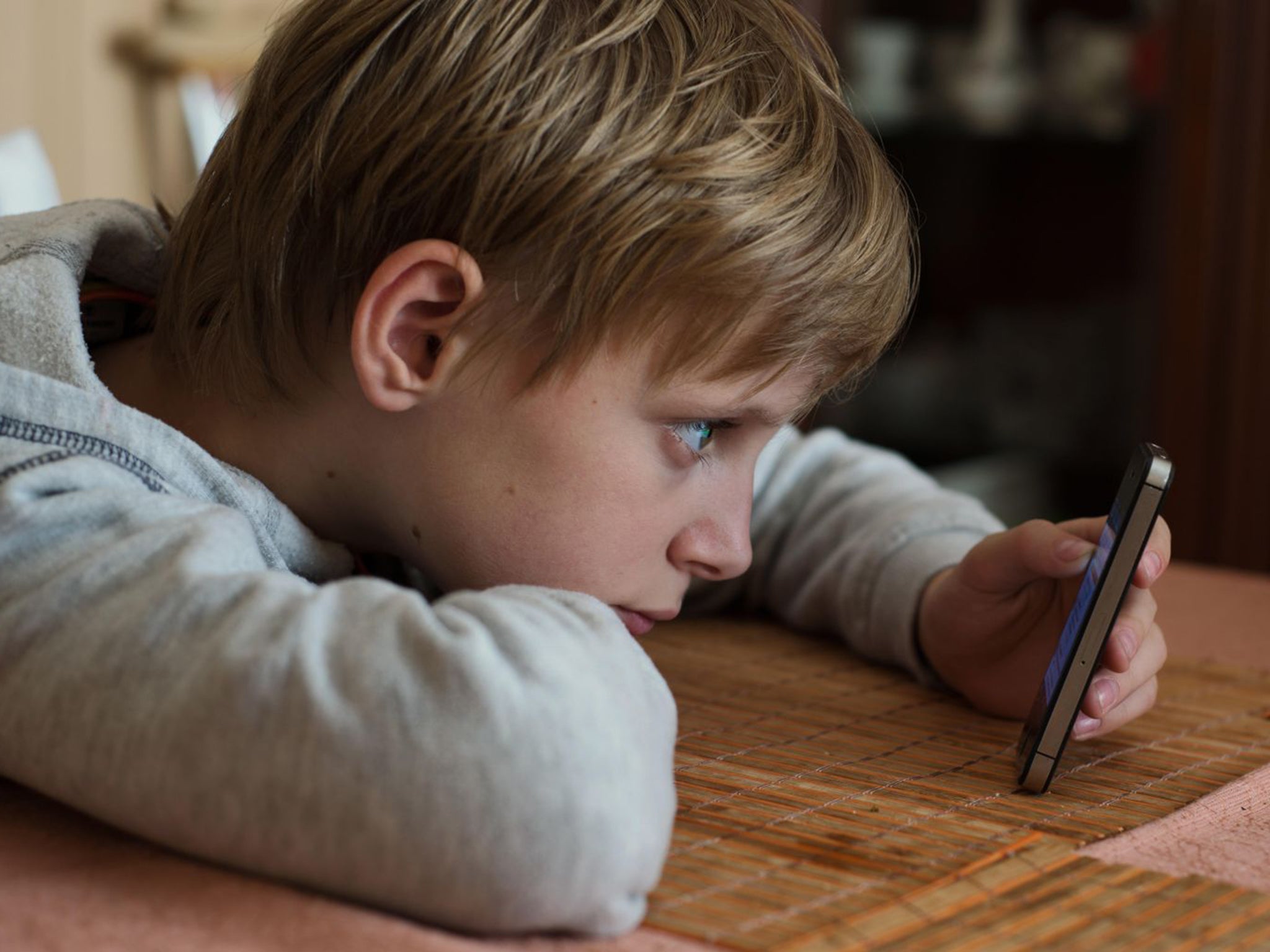Children should not be allowed smartphones until they are 16, says school behaviour expert
The Government is to commission a review into the way technology affects behaviour in schools, amid fears over smartphone use in classrooms

Your support helps us to tell the story
From reproductive rights to climate change to Big Tech, The Independent is on the ground when the story is developing. Whether it's investigating the financials of Elon Musk's pro-Trump PAC or producing our latest documentary, 'The A Word', which shines a light on the American women fighting for reproductive rights, we know how important it is to parse out the facts from the messaging.
At such a critical moment in US history, we need reporters on the ground. Your donation allows us to keep sending journalists to speak to both sides of the story.
The Independent is trusted by Americans across the entire political spectrum. And unlike many other quality news outlets, we choose not to lock Americans out of our reporting and analysis with paywalls. We believe quality journalism should be available to everyone, paid for by those who can afford it.
Your support makes all the difference.Fears over the disruption to classrooms from pupils using smartphones have prompted the Government to commission a review into the way technology affects behaviour in schools.
Children should not be allowed smartphones until they are 16, according to Tom Bennett, the school behaviour expert leading the review. And teachers should not allow them unless absolutely necessary, says Mr Bennett, who is already leading another review into how teachers are trained to tackle bad behaviour.
He has now been asked to look at the wider challenges of managing modern classrooms. Although technology can enhance learning, teachers have reported that the growing number of children bringing digital devices into class is leading to disruption, officials warn.
“We need to make sure the advice we give to schools, and the approaches being used are fit for the 21st century when even primary school pupils may be bringing in phones or tablets. That is why we have taken the decision to expand Tom Bennett’s review to look at how teachers can tackle bad behaviour,” said Nick Gibb, the schools minister. “Whether it is the use of mobile phones or the attitudes of parents to their child’s behaviour in class, we will now probe deeper into behaviour to ensure that no child has to put up with having their education disrupted by misbehaviour.”

Most schools have some sort of policy regarding smartphone use, amid concerns over cyberbullying and online pornography. However, the picture is far from uniform – ranging from zero-tolerance to partial bans.
“I think smartphones in a classroom represent an enormous level of temptation for students, but that isn’t to say that I would ban them,” said Mr Bennett. “My personal recommendation is that schools think very cautiously and carefully before allowing them. I think the default should be that they are not allowed unless teachers invite them for some specific reason.”
Children are getting access to the technology too young, he said. “People ask me, ‘When should I give my child a smartphone?’ and I say, ‘Whenever you’re comfortable with them viewing pornography’, because their curiosity will take them there.
“My personal belief is that I don’t think a child should have a smartphone until they are 16, unless it is under adult supervision.”
Phone use was a child protection issue, he said. “Most parents would supervise in some way internet access for children, and I think it would be an absurd proposition to say that schools shouldn’t do that because we are looking after their safety. I don’t want children in playgrounds swapping pornographic pictures or pictures of horrific scenes or racist websites or whatever. I want to know roughly what they are looking at, and that includes in school.”
Responding to the review into smartphones, Christine Blower, general secretary of the National Union of Teachers, said: “It is important to remember that technology, including the use of smartphones, can be part of successful teaching and learning strategies.”
Brian Lightman, general secretary of the Association of School and College Leaders, said: “We do not believe it is the role of government or Ofsted to micromanage how schools address these issues which are the remit of school leaders.
“Smartphones are powerful technologies which most people use in their working lives therefore schools must teach young people to use them responsibly. How they do that is a professional judgement.”
Mr Bennett said behaviour standards generally in schools were patchy. “The reason is there isn’t a formal process for leaders to be trained into creating and maintaining good behaviour systems.”
Join our commenting forum
Join thought-provoking conversations, follow other Independent readers and see their replies
Comments